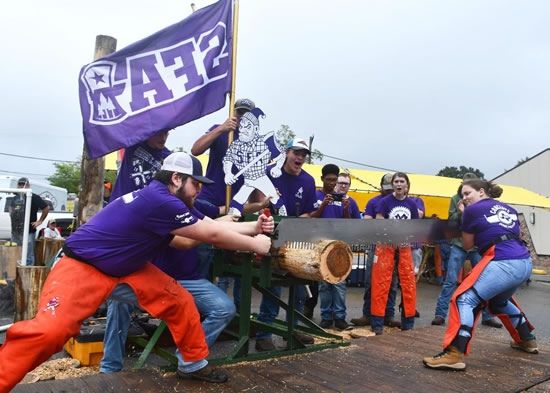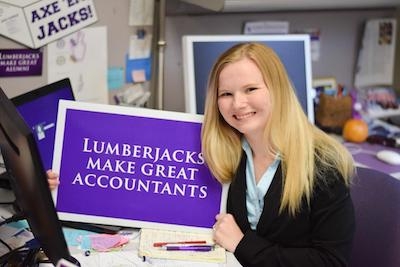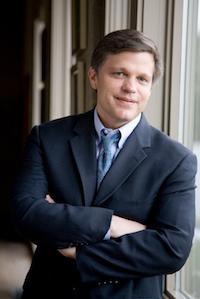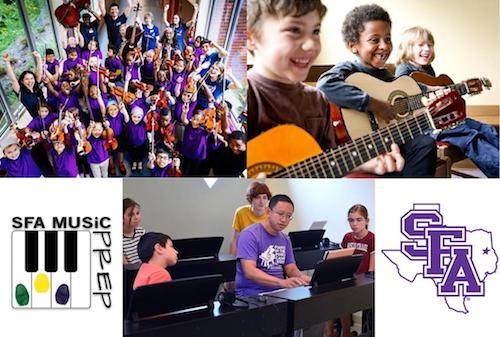SFA University

Stephen F. Austin State University’s timbersports team, the Sylvans, tied for first place in the collegiate portion of the 37th annual Arkansas State Lumberjack Competition held in Sheridan, Arkansas. Pictured, SFA students Mason Helm and Natalie Scammell compete in the Jack and Jill crosscut competition.
October 5, 2021 — Stephen F. Austin State University’s timbersports team, the Sylvans, tied for first place in the collegiate portion of the 37th annual Arkansas State Lumberjack Competition held in Sheridan, Arkansas.
“This was one of the tightest competitions we’ve had since our return from the COVID-19 hiatus,” said Dr. Jeremy Stovall, SFA professor of silviculture and Sylvans faculty advisor.
The Sylvans team, comprising 17 SFA students, competed in seven different physical events against the University of Arkansas at Monticello and Louisiana Tech University.
The Sylvans placed first in the women’s bowsaw and Jack and Jill crosscut; second in the single buck crosscut, axe throw and men’s bowsaw; and third in the double-buck crosscut and underhand chop.
Additionally, Tyler Jones, Sylvans team member and current holder of the Southern Forestry Conclave axe-throwing record, took fifth place in the professional division of the axe-throwing competition.
Ken Bragg, SFA alumnus, past Sylvans president and member of the Arkansas State House of Representatives, officiated the competition. The event also was organized by SFA alumnus Karl Hansen, among others.
October 3, 2021 — College-bound students and their families are invited to Stephen F. Austin State University’s Showcase Preview and Virtual Showcase, both of which will be held during October.
“Whether you attend one of our Showcase SFA events in person or virtually, we’ve designed them all to give attendees an up-close and personal look at everything our campus has to offer,” said Emily Jefferson, SFA director of undergraduate recruitment. “It’s the perfect event to have all your college questions answered while experiencing our campus in really unique ways.”
Showcase Preview
Showcase Preview will take place from 9:30 a.m. to noon October 11 on the SFA campus. It will feature informational fairs and breakout sessions. Jack Walkers, who are current students who serve as tour guides, also will be present at the Showcase Preview to offer tours.
“Showcase was the event that truly opened my heart to SFA,” said Iris Rios, a senior marketing major and Jack Walker. “Attendees can meet so many other future Lumberjacks and get a genuine feel for the campus.”
As a weekday event, prospective students and their families also will have the opportunity to see the campus in action. Smaller than a Showcase Saturday but larger than a campus tour experience, Showcase Preview is the right fit for families looking to make a quick trip to the piney woods.
A welcome session will begin at 9:30 a.m. followed by breakout sessions covering a wide range of topics, including first-year and transfer admission, financial aid, and more.
Attendees may then participate in campus and residence hall tours, academic and student services fairs, and other optional sessions, including a mock classroom experience.
“Showcase-goers should expect to gain knowledge, connections and a deeper love for SFA,” said Kallie Menard, a family and consumer sciences senior and Jack Walker. “Showcase is a great experience and opportunity to learn more about SFA, and also to hang out with our Jack Walkers and other current and prospective students!”
Virtual Showcase
Virtual Showcase will be offered from 9 a.m. to noon October 22. The virtual event provides participants a unique space to interact with academic departments and student resources, showcasing the ways in which SFA is meeting the needs of today’s student in a highly technological world.
“Our Showcase events are the best way to not only get plugged into the SFA community, but also to meet other first-year students who are headed to college at the same time as you,” said Kaci Foster, a senior business management major and Jack Walker. “Our Virtual Showcase offers a chance to meet our admissions team and receive guidance to make sure you’re set and ready for college.”
Held exclusively over Zoom, SFA’s Virtual Showcase will begin with a welcome session. Academic breakout sessions by college will then take place, followed by other breakouts covering a range of topics, including first-year and transfer admissions, as well as student services overviews.
“Our Showcase guests will get an exclusive look at all aspects of campus life and have a chance to speak with Lumberjacks from every corner of SFA,” said Thomas Martin, senior political science major and Jack Walker.
Unique to our Virtual Showcase is a student-led panel that will allow attendees to speak to and ask questions of our current students. Virtual Showcase will end with optional sessions, including personalized admission counseling and a virtual campus tour.
To register for a Showcase SFA event or for more information, visit sfasu.edu/showcase.

The Accountancy Pathway to CPA, an online and online-interactive curriculum, is designed for experienced, working professionals interested in obtaining the courses required to sit for the CPA exam.
September 28, 2021 — Business professionals who want to reap the benefits of licensure as a CPA have the opportunity through a new program offered by Stephen F. Austin State University’s Rusche College of Business.
The Accountancy Pathway to CPA, an online and online-interactive curriculum, is designed for experienced, working professionals interested in obtaining the courses required to sit for the CPA exam.
Offered through the Gerald W. Schlief School of Accountancy, the 30-hour program results in a Master of Professional Accountancy, a certificate in forensic accounting and analytics, and qualification to sit for the Certified Public Accountant exam in the state of Texas, with no degree in accounting required to enroll.
“This degree program is designed for those who have been in the workforce long enough to truly know what direction they want their career to take,” said Dr. Nikki Shoemaker. “As a CPA, you become more valuable across all industries in both the public and private sectors, and you become a strong candidate for management positions.”
The coursework includes topics such as advanced accounting, auditing, accounting research, regulation, analysis, communications and ethics. In addition to the MPA, and eligibility to sit for the CPA, the accompanying certification in forensic accounting and analytics enables graduates to identify fraudulent activities and understand the laws associated with fraud.
Since the program is ideally meant for those who hold a bachelor’s degree and are already two or more years into their careers, the online delivery is crucial, allowing students to stay where they are while moving ahead.
“It’s not realistic for people with families and good jobs to drop what they’re doing to come to campus,” Shoemaker said. “Through the Accountancy Pathway to CPA, students can take a big step forward without taking two steps back.”
To enroll in the program, applicants need to apply to the SFA Graduate School at www.applytexas.org. Additionally, applicants are required to submit a professional resume that details their work history and associated job duties. Applicants with an undergraduate GPA of 2.75 or higher and a minimum of two years of professional work experience will receive clear admission into the program.
For more information, contact Nikki Shoemaker at shoemakenl@sfasu.edu or (936) 468-3105. Learn more about the Rusche College of Business and the Schlief School of Accountancy.
 September 13, 2021 – Dr. Douglas Brinkley, CNN presidential historian and professor of history at Rice University, will present “Discovering America from the Road” from 6:30 to 7:30 p.m. Tuesday, September 14, at Stephen F. Austin State University in the Baker Pattillo Student Center Theater.
September 13, 2021 – Dr. Douglas Brinkley, CNN presidential historian and professor of history at Rice University, will present “Discovering America from the Road” from 6:30 to 7:30 p.m. Tuesday, September 14, at Stephen F. Austin State University in the Baker Pattillo Student Center Theater.
Brinkley, whom CNN declared, “a man who knows more about the presidency than any human alive,” is the Katherine Tsanoff Brown Chair in Humanities at Rice, an American historian, best-selling author and sought-after commentator on U.S. presidential history. He has authored books on several presidents, including Theodore Roosevelt, Franklin Roosevelt, John F. Kennedy, Jimmy Carter, Gerald Ford and Ronald Reagan. Nancy Reagan personally selected Brinkley to edit President Reagan’s 2011 presidential diaries.
Brinkley’s presentation will highlight his experiences with one of the most renowned study away programs in the country’s history — the American Odyssey tour. He will talk about the benefits of seeing America to help better understand its complicated past and its complex present. Brinkley will address how transformational these experiences were and the adventures he had along the way.
While teaching at the U.S. Naval Academy in Annapolis, Brinkley spearheaded the American Odyssey course. He took students on a natural-gas-powered bus on numerous cross-country treks where they visited historic sites and met cultural icons, including Arthur Miller, Toni Morrison, Jimmy Carter, Morris Dees, Ken Kesey, John Kenneth Galbraith and William S. Burroughs. The class was written about in The New York Times and dozens of other newspapers. The Associated Press wrote, “If you can’t tour the United States yourself, the next best thing is to go along with Douglas Brinkley aboard ‘The Majic Bus.’”
“Stephen F. Austin State University is one of my favorite campuses to visit,” Brinkley said. “I’m excited to tell students and faculty about my American Odyssey tours. I’m glad to know that the spirit of ‘The Majic Bus’ is still alive and well in the age of Covid.”
Dr. Sarah Straub, SFA assistant professor of education studies, was instrumental in bringing Brinkley to SFA. In what Straub considered a “shot in the dark” moment, she reached out to Brinkley after reading one of his books. The pair corresponded, and a friendship was formed.
“While (Brinkley) is impressive on so many levels, I connected with his adventurous spirit and love of learning through the transformational experiences he creates for his students,” Straub said. “Those who attend this talk will leave ready to start their own adventures.”
Brinkley’s presentation helps support Straub’s recruitment initiatives for her own study away program in spring 2022, which is funded in part by the President’s Innovation Award.
Brinkley’s visit to SFA marks the second time he’s served as a guest speaker on the campus. He headlined the Archie McDonald Speaker Series in spring 2017.
Six of Brinkley’s books have been selected as The New York Times’ “Notable Books of the Year,” and seven of his publications are The New York Times bestsellers.
Brinkley also has been involved in the environmental conservation and historic preservation community. He has held board or leadership advisory roles in support of the American Museum of Natural History, Yellowstone Park Foundation, National Audubon Society and the Rockefeller-Roosevelt Conservation Roundtable. In 2016, the U.S. Fish and Wildlife Service honored him with its Annual Heritage Award.
A side passion of Brinkley’s is music, winning a Grammy Award in 2017 in the best jazz ensemble category as co-producer for “Presidential Suite: Eight Variations on Freedom,” and he was nominated for a Grammy Award for “Gonzo,” a collaboration with Johnny Depp.
Brinkley has been a frequent contributor to publications such as Vanity Fair, The New York Times, The New Yorker and The Atlantic Monthly. He also serves on the board of trustees at Brevard College and the Franklin D. Roosevelt Presidential Library.
He completed his bachelor’s degree at Ohio State University and received his doctoral degree in U.S. diplomatic history from Georgetown University in 1989. He then spent a year each at the U.S, Naval Academy and Princeton University teaching history.
Before joining the Rice University faculty, Brinkley served as professor of history and director of the Roosevelt Center at Tulane University in New Orleans. From 1994 until 2005, he was the Stephen E. Ambrose Professor of History and director of the Eisenhower Center for American Studies at the University of New Orleans.
The presentation is free and open to the public. Seating is limited to approximately 150. Face coverings are strongly encouraged but not mandatory.
For more information, contact Straub at straubsm@sfasu.edu.
September 10, 2021 - Almost 12,000 students enrolled for fall classes at Stephen F. Austin State University.
Fall enrollment totaled 11,946, a decrease of 674 students, or 5%. While total undergraduate enrollment decreased 6%, or 688 students, enrollment of new first-year undergraduate students increased 4%, and transfer-student enrollment increased 2%.
“The increase in new first-year and new transfer students is encouraging,” said Erma Brecht, executive director of enrollment management. “It is exciting to welcome and serve students on campus and students who are learning from a distance. SFA stands committed to providing learning options that best fit our students’ needs.”
Overall graduate enrollment increased by almost 1%, from 1,633 to 1,647 students. This is the second consecutive increase in graduate enrollment from 2019, when 1,475 students were enrolled.
For more information about SFA enrollment, visit http://sfasu.edu/admissions.
September 9, 2021 — In an ongoing effort to help ensure student success and expand courses to encompass the diverse field of agriculture, Stephen F. Austin State University’s Department of Agriculture now offers a specialized track in agricultural communications.
Agricultural communications combines core agriculture and communications proficiencies to help prepare students to become effective communicators for the agriculture industry. In addition to core agricultural courses, such as animal science, soil science and farm management, students develop skills in writing, photojournalism, public relations and media content development that relate to modern agricultural industries.
“People are becoming more and more aware of agriculture and our diverse practices,” said Dr. Joey Bray, chair of SFA’s Department of Agriculture. “While that’s good, we also have to contend with misconceptions and a lack of agriculture-related information made available to the public.”
Bray said this degree track provides students with the skills needed to promote the field and properly convey science-based information to the public.
The U.S. Bureau of Labor and Statistics projects a 9% growth rate in jobs in the fields of agriculture and food sciences during the next decade — a promising outlook for students interested in the discipline.
Bray said agricultural communications open a number of career pathways, including employment in agricultural extension, governmental agencies, private industry, marketing, consulting and public relations.
To learn more about SFA’s agriculture program, visit ag.sfasu.edu.
Story by Sarah Fuller, outreach coordinator for Stephen F. Austin State University’s Arthur Temple College of Forestry and Agriculture.
A ugust 31, 2021 — Daymond John is an award-winning entrepreneur who founded FUBU, a streetwear fashion brand that to this day has garnered more than $6 billion in product sales worldwide. But as big as FUBU is now, it all started out with a detail as small as a stitch. His mother taught him how to sew, a skill that powered John's rise from an ambitious everyman in New York City to a global entrepreneur who sees opportunities at every turn.
ugust 31, 2021 — Daymond John is an award-winning entrepreneur who founded FUBU, a streetwear fashion brand that to this day has garnered more than $6 billion in product sales worldwide. But as big as FUBU is now, it all started out with a detail as small as a stitch. His mother taught him how to sew, a skill that powered John's rise from an ambitious everyman in New York City to a global entrepreneur who sees opportunities at every turn.
John's accomplishments rest on a basic and unyielding belief in himself, a belief shared by others. His mother agreed to take out a $100,000 mortgage on her house and move her son's business into the basement where he started out with jerseys, T-shirts, sweatshirts and hats. Three longtime friends joined the venture as partners, and hip-hop icon LL Cool J, who knew John from the borough of Queens where they both grew up, agreed to wear a FUBU shirt during a promotional campaign.
John's clothing brand — and subsequently his marketing firm, The Shark Group — and his television career with "Shark Tank" have all launched into the stratosphere.
He will serve as the guest speaker in the third installment of the Rusche College of Business Nelson Rusche Distinguished Lecture Series scheduled for 7:30 p.m. Oct. 28 in the Kennedy Auditorium at Stephen F. Austin State University. A private reception will be held prior to the lecture at 6 p.m.
The lecture series was created in 2016 to honor A. Nelson Rusche, who endowed the college with a $5 million gift to provide scholarships to students majoring in business and to support other programs. Previous speakers include skateboarding champ Tony Hawk in 2019 and former Florida governor and presidential candidate Jeb Bush in 2016. The event was cancelled in 2020 due to COVID-19.
"The Nelson Rusche Distinguished Lecture Series was established to bring outstanding business leaders to campus for the benefit of our students," said Dr. Tim Bisping, dean of the college of business. "Daymond John and his accomplishments serve as exceptional examples for our students, and I am excited to hear the message that he will have for all of us.
"Entrepreneurship is vital to the health of our economy, which makes it crucially important for everyone. As we work to grow our entrepreneurship initiatives in the Rusche College of Business, having someone of Daymond's caliber on campus is an incredible opportunity."
John is celebrating his 12th season as an original cast member on ABC's Emmy Award-winning business reality show "Shark Tank." John is also an author of five bestselling books, including New York Times bestsellers "The Power of Broke" and "Rise and Grind," and recently released the Audible Original, "Founding FUBU."
John has received more than 35 awards, including the Brand Week Marketer of the Year, Advertising Age Marketing 1000 Award for Outstanding Ad Campaign, and Ernst & Young's New York Entrepreneur of the Year Award. He was most recently named No. 2 on LinkedIn's Top 20 Voices.
The Nelson Rusche Distinguished Lecture Series is free and open to the public. To purchase tickets for the 6 p.m. private reception, contact SFA's Office of Development at 936.468.5406, or email Sarah Sargent, director of advancement services, at sargentsl@sfasu.edu. Tickets cost $150.
For more information about the lecture series, visit sfasu.edu/rusche.
August 20, 2021 – The Music Preparatory Division of the Stephen F. Austin State University School of Music will host its annual Middle School Choir Camp from 9 a.m. to 4 p.m. Saturday, Sept. 18, in Wright Music Building on the SFA campus, according to Alba Madrid, Music Prep director.
Fee is $20 per participant, and those attending should bring their Region 21 All-Region music, a pencil, water and a snack. Concessions can be purchased during scheduled breaks. Lunch is not provided. The west dining hall in the Baker Pattillo Student Center will be open from 10 a.m. to 1 p.m.
Camp conductors are Dr. Michael Murphy, director of choral activities at SFA, and Claire Murphy, coordinator of music education. Clinicians include Sara Rosado, soprano I; Dianna Grabowski, soprano II; Nicole Stewart, alto; Nita Hudson, tenor; and Dr. Scott LaGraff, bass.
For additional information, contact the Music Prep office at (936) 468-1291 or Madrid at musicprep@sfasu.edu. More information is also available online at www.sfamusicprep.com.
August 19, 2021 — After being postponed then canceled more than a year ago as a result of the pandemic, Stephen F. Austin State University's SFA Gardens will bring back its monthly Theresa and Les Reeves Lecture Series next month with a presentation by gardens staff members.
Dawn Stover, research associate, and Jordan Cunningham, greenhouse technician, will present “Plant Sale Preview” at 7 p.m. September 9 at the Brundrett Conservation Education Building in the Pineywoods Native Plant Center.
Each year, Stover and Cunningham are responsible for organizing two successful plant sales, coordinating student workers and volunteers for the events, which provide additional funding for the gardens as well as community outreach.
The presentation will highlight a few of the exciting new selections and old favorites available at the upcoming fall sale, which will be from 9 a.m. to 2 p.m. October 9 and 10 at the PNPC. After being presented in a socially distanced format since 2020, the plant sale will return to a traditional in-person setting this fall.
The Theresa and Les Reeves Lecture Series is held the second Thursday of each month and includes a rare plant raffle after the program. The lecture is free and open to the public, but donations to the Theresa and Les Reeves Lecture Series fund are always appreciated.
Parking is available at the PNPC and Raguet Elementary School, located at 2428 Raguet St.
For more information, visit sfasu.edu/sfagardens.

Visit sfamusicprep.com or call (936) 468-1291 to learn about the many classes available to musicians of all ages through the Music Preparatory Division of the Stephen F. Austin State University School of Music.
August 18, 2021 – The Music Preparatory Division of the Stephen F. Austin State University School of Music has announced new classes that will appeal to younger musicians and adult hobbyists alike.
“Musical Moments” piano classes for adults begins September 7. “Musical Moments” was written to create a stress-free, enjoyable learning experience for the beginning adult student, according to Alba Madrid, Music Prep director.
“Students will learn to read music, play by chords and create music with other hobbyists,” she said. “Join the growing number of adults across the country who are learning to play piano using this fun and innovative program.” Morning and evening classes are available.
Also new for the fall semester is guitar group instruction beginning Aug. 20 for students ages 9 through 16 who are interested in learning to play guitar. Emphasis is placed on classical technique, fundamentals and ear training using standard repertoire.
“Way Cool Keyboarding 4 Kids” for children ages 6 through 10 will begin September 8. In this class, students will experience the fun of playing in their own piano band, Madrid said.
“This group environment provides many positive musical and non-musical benefits, including the development of concentration and listening skills as they learn to blend together as an ensemble,” she said. “Your child will look forward to each week as they make music with their friends.”
Piloted this past spring, Music Prep’s String Project continues this fall. The initiative includes the nine public school districts within Nacogdoches County and some surrounding districts. String Project students have the opportunity to learn to play a stringed instrument at a low tuition cost as part of an after-school activity. The project is grant and community funded. Lessons begin September 2.
More information, including class times and dates and tuition costs, on each of these offerings is available online at sfamusicprep.com or by calling (936) 468-1291. Madrid can also be reached by email at madrida@sfasu.edu or musicprep@sfasu.edu. Program information is also available on Facebook and Instagram.








